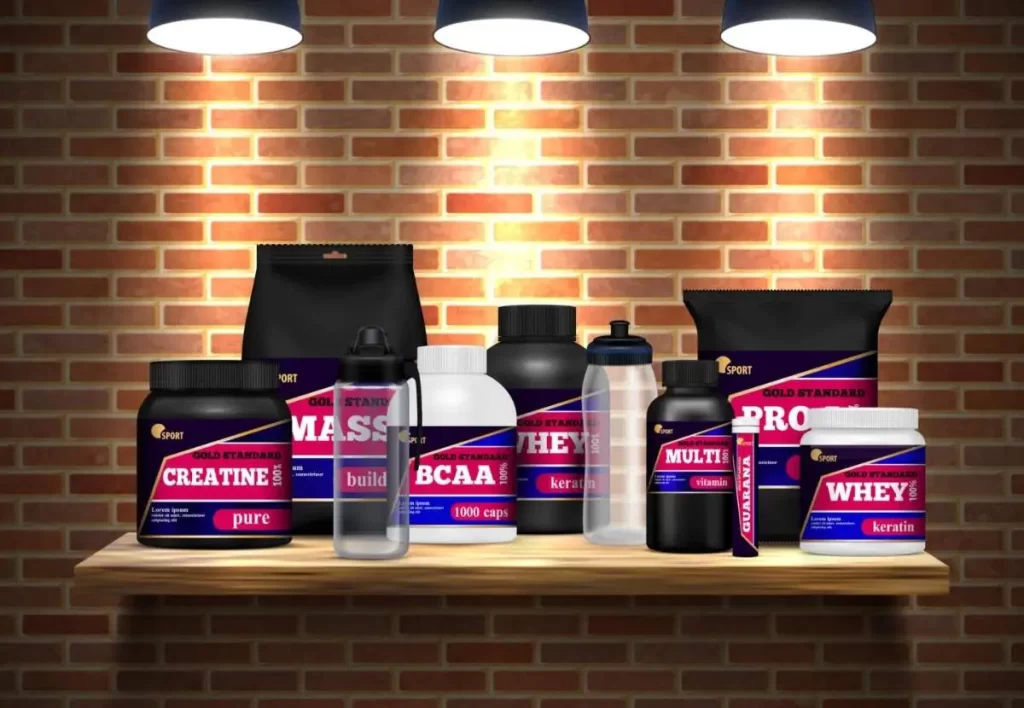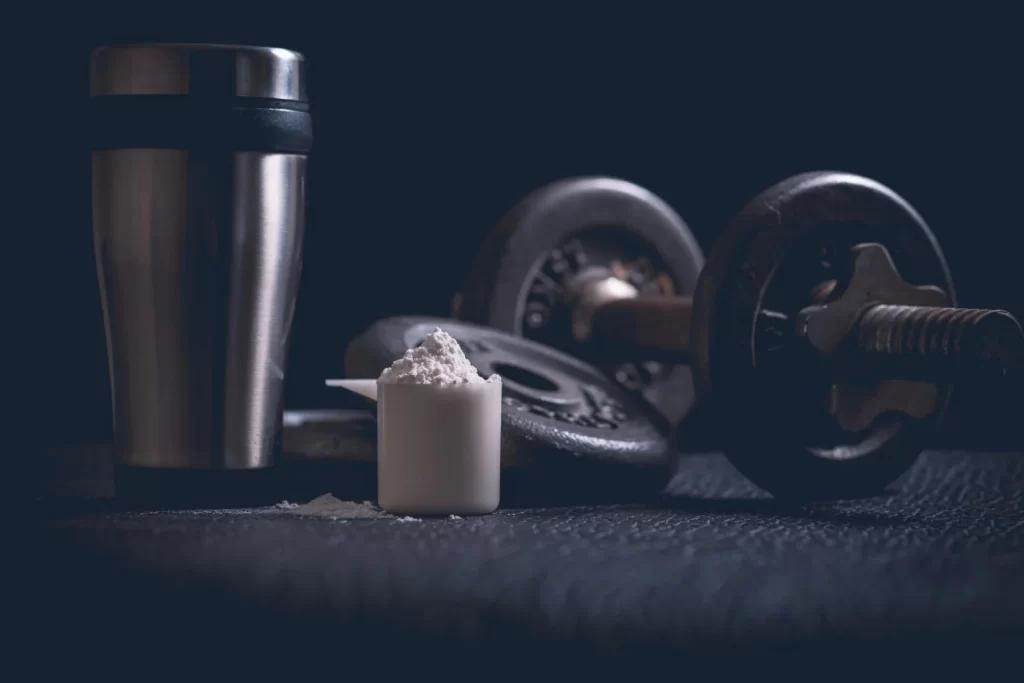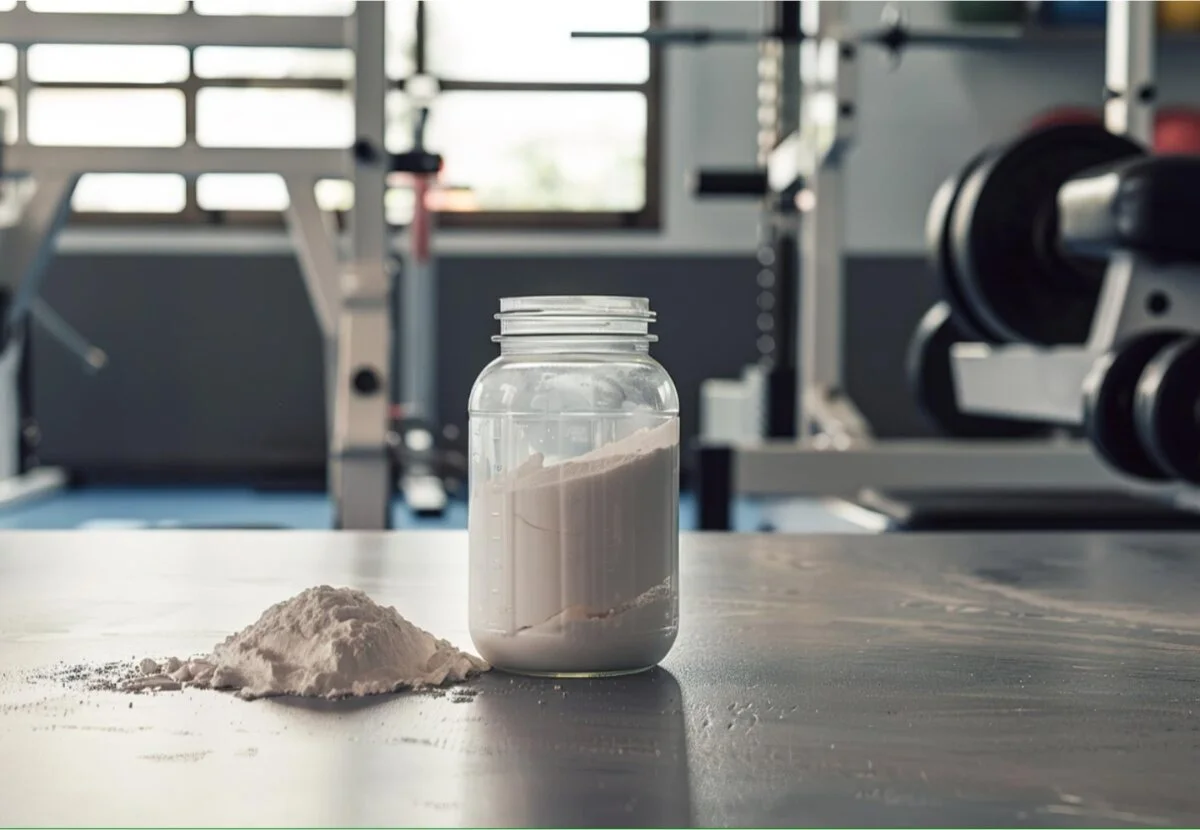Table of Contents
Introduction
In recent years, protein powder has emerged as a popular dietary supplement, widely recognized for its role in supporting muscle growth, aiding recovery from exercise, and serving as a convenient source of essential amino acids. Despite its popularity among those engaged in strength training, questions about its efficacy and safety continue to surface. This includes concerns over potential contaminants like heavy metals, and choosing the best protein powder a subject of critical examination. Protein supplements, including whey protein powder and vegan protein powder options, have become integral to nutritional strategies for individuals ranging from elite athletes to those managing conditions like sarcopenia. However, understanding the balance between benefits and risks is essential for making informed health decisions.
This article will delve into what protein powder is, detailing its types, such as whey protein and vegan protein powders, and discuss their sources and role as a dietary supplement. The review will highlight the benefits of incorporating protein powder supplements into the diet, particularly for strength training and muscle maintenance, while also addressing potential risks and side effects, including the presence of heavy metals. Furthermore, guidance on how to choose a safe protein powder, by considering factors like organic protein powder’s quality and the significance of protein sources, will be provided. Concluding with a comprehensive assessment, this article aims to equip readers with the knowledge to select the protein powder that best aligns with their health and nutritional goals.
What is Protein Powder?
Protein powder is a dietary supplement designed to increase protein intake, essential for various bodily functions such as muscle growth, recovery, and immune system regulation. These powders are derived from multiple sources, including milk for whey and casein proteins, and plants like soybeans, peas, and hemp 1 2. The primary purpose of protein powder is to provide a concentrated source of protein with low levels of fats and carbohydrates 1.
Types of Protein Powder
Protein powders can be categorized mainly into concentrates and isolates. Protein concentrates are produced by extracting protein from whole foods, removing excess water and carbohydrates, and converting the residue into powder form 1. This type often contains higher levels of fats and carbohydrates compared to isolates. On the other hand, protein isolates undergo additional processing to remove fat and lactose, resulting in a product that contains up to 90% or more protein 1.
Among the most popular types of protein powders are whey protein products, which come in three forms: whey protein concentrate (WPC), whey protein isolate (WPI), and whey protein hydrolysate (WPH). Each type differs in protein content and the level of processing it undergoes. For instance, WPC can contain 30–90% protein, whereas WPI has over 90% due to additional fat and lactose removal 2.
Common Ingredients in Protein Powders
Protein powders are not just about protein. They often include various additives to enhance flavor, nutritional value, or both. Common additives include creatine and glutamine, which are favored for their muscle recovery benefits. Additionally, depending on the product, the powders may contain sugars, artificial or natural sweeteners, and sometimes herbal extracts to improve palatability 2.
The choice of ingredients can significantly affect the nutritional profile and suitability of the protein powder for different individuals. For example, those with lactose intolerance may experience digestive distress from milk-based proteins, which highlights the importance of selecting a protein powder that aligns with one’s dietary restrictions and health goals 3.

The Benefits of Protein Powder
Muscle Building
Protein is fundamental for muscle growth, particularly after strength training. A 2018 analysis of 49 studies highlighted that protein supplementation significantly enhances muscle size and strength in adults engaging in resistance exercises like weight lifting 4. This benefit is consistent across genders, although it may diminish slightly with age due to increased protein needs in older adults 4. Research also indicates that consuming 20 to 40 grams of protein post-exercise can optimize muscle recovery and growth, with higher amounts offering no additional benefits 5.
Weight Management
Protein’s role in weight management is supported by its ability to enhance satiety and thereby reduce overall calorie intake. Studies show that protein-rich diets can help individuals feel fuller for longer, which aids in maintaining a healthy weight or achieving weight loss 6. A 2017 review reported that whey protein supplementation might reduce body weight and fat mass in overweight or obese individuals 4. Furthermore, consuming a high-protein diet combined with strength training not only aids in muscle building but also helps in maintaining a healthy metabolism, which is crucial for weight loss and management 6.
Convenience
Protein powders offer a convenient way to increase dietary protein intake, especially for those with active lifestyles or dietary restrictions such as vegetarians and vegans. They are easy to prepare and can be consumed on the go, making them a practical choice for busy individuals 7. Additionally, protein shakes can be a beneficial supplement for athletes who need to ensure adequate protein intake to support intense training sessions 7. For those unable to meet their protein requirements through diet alone, protein powders serve as an efficient and effective solution 7.
Protein powders not only support muscle building and weight management but also offer a convenient nutritional supplement for a wide range of individuals, including those leading active lifestyles and those with specific dietary needs.

Potential Risks and Side Effects
Contaminants in Protein Powders
Recent studies have raised significant concerns regarding the presence of heavy metals in protein powders. A notable analysis by Consumer Reports revealed that daily consumption of three servings of certain protein powders could lead to heavy metal intake exceeding the limits proposed by U.S. Pharmacopeia 8. Furthermore, a subsequent study found elevated levels of heavy metals in 40% of the 133 protein powder products tested 8. These contaminants, including arsenic (As), cadmium (Cd), mercury (Hg), and lead (Pb), are known for their potential to induce serious health issues such as carcinogenesis, neurotoxicity, and nephrotoxicity 8. The manufacturing processes or the presence of these metals in soil absorbed by plants used in protein powders are often blamed for this contamination 3.
Digestive Issues
Protein powders, especially those derived from dairy, can cause digestive distress for individuals with lactose intolerance or milk allergies. Symptoms such as stomach cramps, excessive gas, and irregular bowel movements are commonly reported 9. The enzyme lactase, necessary for digesting lactose, is absent in sufficient quantities in many individuals, exacerbating these symptoms 10. Additionally, some protein powders may contain high levels of added sugars and calories, potentially leading to weight gain and spikes in blood sugar, which contradicts the intended health benefits of such supplements 3.
Excessive Protein Intake
While protein is essential for muscle repair and growth, excessive intake can lead to adverse effects. Overconsumption of protein, particularly from supplements, can result in amino acid imbalances and hinder the body’s ability to utilize other nutrients, potentially increasing the risk of muscle loss and fatigue 11. High protein intake has also been linked to potential kidney damage, especially in individuals with preexisting kidney conditions, as it can increase the burden on these organs 11. Moreover, there is a concern that excessive protein may leach calcium from the bones, potentially leading to osteoporosis, although recent studies suggest that higher protein intake might benefit bone health 10.
How to Choose a Safe Protein Powder
Choosing a safe protein powder involves several critical considerations to ensure that the product not only meets your nutritional needs but also maintains high safety standards. Here are key factors to consider:
Third-Party Testing
One of the most reliable ways to verify the safety and quality of protein powder is through third-party testing. Products that have been tested and certified by independent organizations such as NSF International or the US Pharmacopeia are generally more trustworthy. These certifications indicate that the protein powder meets strict standards for quality and purity and that it does not contain harmful levels of contaminants such as heavy metals or banned substances.
Minimal Added Sugars
It’s important to select a protein powder that contains minimal added sugars. Excessive sugar intake can lead to various health issues, including weight gain and metabolic disturbances. Many protein powders on the market are flavored and sweetened, which can increase the sugar content significantly. Opting for powders with low or no added sugars can help maintain a healthier diet, especially for those monitoring their caloric intake.
Choosing the Right Type for Your Needs
Protein powders come in various forms, each suited to different dietary needs and health goals. Whey protein is popular among athletes for its rapid digestion and abundance of essential amino acids, which support muscle recovery. Vegan protein powders, such as those derived from peas or hemp, are excellent alternatives for those following a plant-based diet. It’s crucial to choose a protein type that aligns with your dietary restrictions and health objectives to maximize the benefits while minimizing potential risks.
By considering these factors—third-party testing, sugar content, and the specific type of protein—you can make an informed choice about which protein powder is best suited for your health and wellness goals.

Conclusion
Through the comprehensive assessment provided, it’s clear that protein powders offer significant benefits regarding muscle building, weight management, and dietary convenience for individuals with varying nutritional needs. Particularly, for those engaged in strength training, pursuing weight loss goals, or facing dietary restrictions, protein supplements serve as an efficacious solution to fulfill protein requirements. However, the discourse also reveals potential risks associated with protein powders, including concerns about contaminants such as heavy metals and the possibility of digestive issues or adverse effects due to excessive intake, underscoring the importance of balanced consumption and informed choices.
In navigating the landscape of protein powders, the emphasis on selecting a safe, high-quality product becomes paramount. By prioritizing powders tested by third-party organizations, low in added sugars, and aligned with individual health and dietary needs, consumers can mitigate risks while harnessing the potential health benefits. As this review underscores the dual facets of protein supplementation—their significant benefits and potential drawbacks—it ultimately encourages a thoughtful, well-informed approach towards integrating protein powders into one’s diet, suggesting avenues for further research and personal consideration to maximize health outcomes.
FAQs
- Do protein powders offer any health benefits?
Protein powders can be a useful dietary supplement for various individuals, including athletes, older adults, vegetarians, and vegans, providing a convenient source of complete protein and sometimes additional nutrients. However, they are not necessary for everyone. - What are the potential side effects of consuming protein powder?
Protein powders, such as whey protein, are generally safe for most adults when used appropriately. Nevertheless, consuming high doses may lead to side effects like increased bowel movements, acne, nausea, thirst, bloating, reduced appetite, tiredness, and headaches. - Which type of protein powder is considered the healthiest?
Whey protein and whey isolates are considered the best types of protein powders, particularly for those looking to maintain or lose weight. It’s advisable to choose protein shakes without added sugars or dextrins/maltodextrins, and to avoid those supplemented with branched-chain amino acids (BCAAs) if weight gain is not the goal, as BCAAs can promote muscle growth and weight gain. - Are protein powders approved by the FDA?
Protein powders fall under the category of dietary supplements in the U.S. and are not regulated by the Food and Drug Administration (FDA) in the same manner as foods and drugs. Instead, they may undergo third-party testing for quality and safety.
References
[1] – https://www.garagegymreviews.com/types-of-protein-powder
[2] – https://www.chhs.colostate.edu/fsi/food-articles/dairy-2/protein-powder/
[3] – https://www.health.harvard.edu/staying-healthy/the-hidden-dangers-of-protein-powders
[4] – https://www.medicalnewstoday.com/articles/323093
[5] – https://www.health.harvard.edu/blog/the-scoop-on-protein-powder-2020030918986
[6] – https://www.healthline.com/nutrition/protein-shakes-weight-loss
[7] – https://www.webmd.com/diet/protein-shakes
[8] – https://www.ncbi.nlm.nih.gov/pmc/articles/PMC7509468/
[9] – https://pranaon.com/blogs/blog/why-whey-protein-is-upsetting-your-stomach
[10] – https://www.healthline.com/nutrition/whey-protein-side-effects
[11] – https://www.eatingwell.com/article/8054894/is-too-much-protein-powder-bad-for-you/







